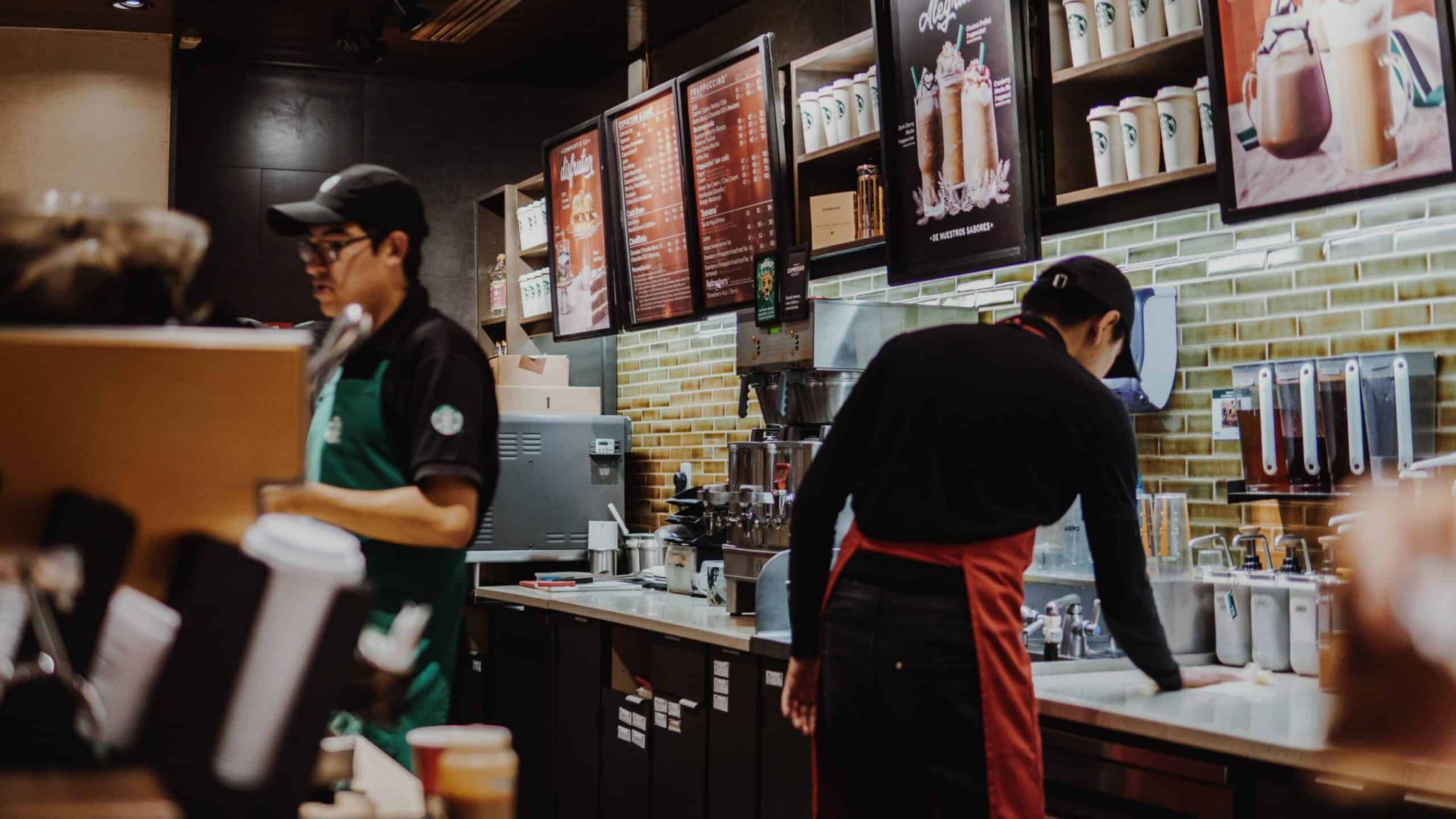
Fred Wang is a student at Harvard Law School.
In today’s News & Commentary, a lookback at a historic year of unionizing at Starbucks and across the tech industry.
It’s been a little over a year since the first Starbucks store in the U.S. organized, as Kevin summarized this weekend. A lot has changed in that time, to put it mildly.
As the Seattle Times recounts, while over 260 of its U.S. stores have unionized, Starbucks — “seen historically as employee-friendly” — has clashed with union workers the entire way. Claims of Starbucks retaliating against unionizing efforts are surely familiar at this point. Since January, the Starbucks Union has filed 548 unfair labor charges against Starbucks, per data collected by Matt Bruenig. Perhaps not coincidentally, election filings have started to level off in recent months. And as many stores shift from the union-organizing phase to the “slow contract negotiation process,” Starbucks’s efforts to obstruct to impede the labor movement are sure to continue. In short, “Starbucks has changed, and so has its relationship with workers.”
Still, many workers are committed to seeing this entire fight through. As one Seattle barista, Rachel Ybarra, put it: “Starbucks can’t get rid of me. I’m going to stay with this company until I can make it the company that it should be.”
“2022 saw an unprecedented rise in labor organizing in U.S. tech firms,” Axios notes, in a piece briefly summarizing the year’s major news in tech workers’ labor activism — such as organizing efforts at Amazon, Apple, and across the video game industry. Although labor organizing in the tech space is “still in its infancy,” Axios notes, the momentum that’s been built in the past year may well carry over into the next, especially as national approval of labor unions continues to rise.






Daily News & Commentary
Start your day with our roundup of the latest labor developments. See all
March 1
The NLRB officially rescinds the Biden-era standard for determining joint-employer status; the DOL proposes a rule that would rescind the Biden-era standard for determining independent contractor status; and Walmart pays $100 million for deceiving delivery drivers regarding wages and tips.
February 27
The Ninth Circuit allows Trump to dismantle certain government unions based on national security concerns; and the DOL set to focus enforcement on firms with “outsized market power.”
February 26
Workplace AI regulations proposed in Michigan; en banc D.C. Circuit hears oral argument in CFPB case; white police officers sue Philadelphia over DEI policy.
February 25
OSHA workplace inspections significantly drop in 2025; the Court denies a petition for certiorari to review a Minnesota law banning mandatory anti-union meetings at work; and the Court declines two petitions to determine whether Air Force service members should receive backpay as a result of religious challenges to the now-revoked COVID-19 vaccine mandate.
February 24
In today’s news and commentary, the NLRB uses the Obama-era Browning-Ferris standard, a fired National Park ranger sues the Department of Interior and the National Park Service, the NLRB closes out Amazon’s labor dispute on Staten Island, and OIRA signals changes to the Biden-era independent contractor rule. The NLRB ruled that Browning-Ferris Industries jointly employed […]
February 23
In today’s news and commentary, the Trump administration proposes a rule limiting employment authorization for asylum seekers and Matt Bruenig introduces a new LLM tool analyzing employer rules under Stericycle. Law360 reports that the Trump administration proposed a rule on Friday that would change the employment authorization process for asylum seekers. Under the proposed rule, […]